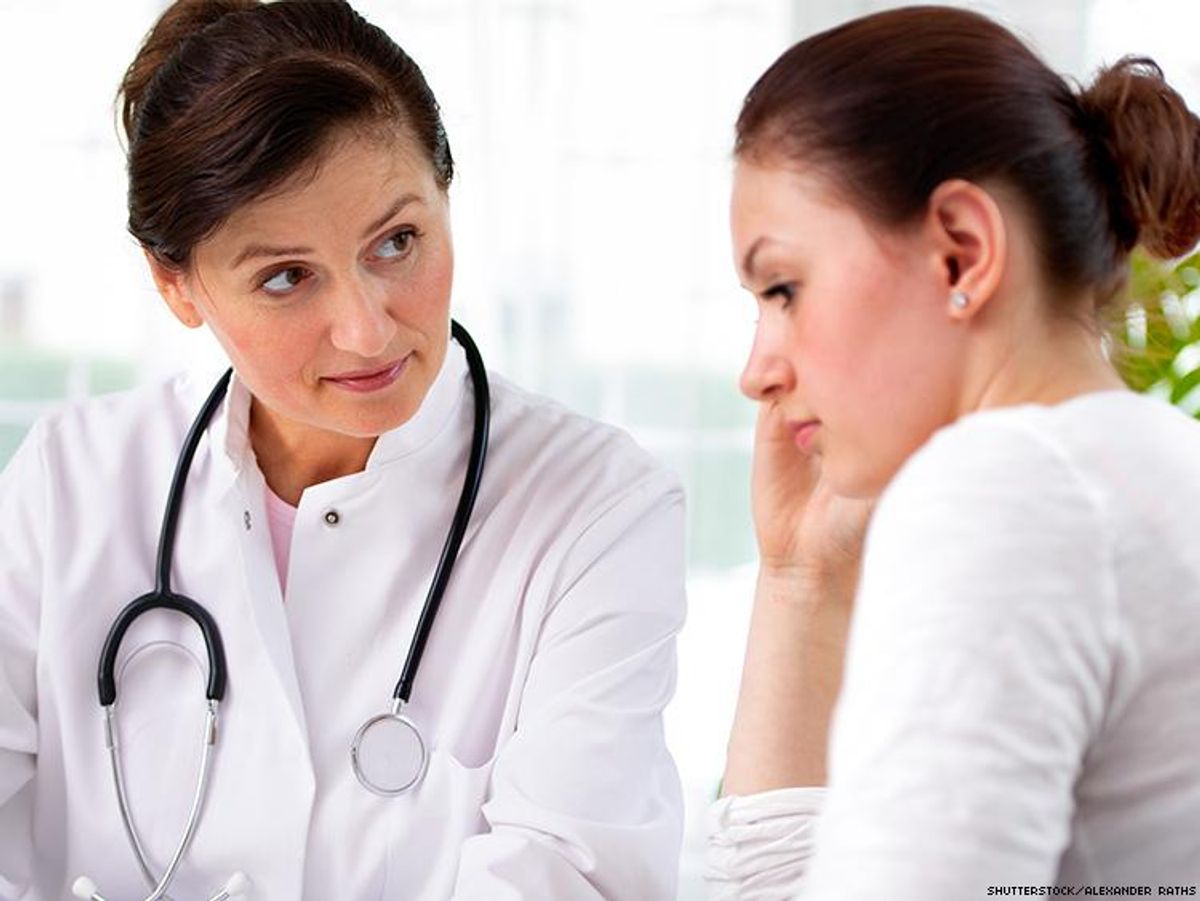
Most doctors are woefully uninformed on the health needs of bisexuals. Let's change that.
September 17 2015 4:00 AM EST
September 17 2015 8:50 AM EST
By continuing to use our site, you agree to our Private Policy and Terms of Use.

Most doctors are woefully uninformed on the health needs of bisexuals. Let's change that.
Last month I went to my gynecologist for a routine exam, and I promised myself that I would come out to my doctor as bisexual. Having just written a new research brief for the Human Rights Campaign Foundation about the major health disparities facing bisexual people, I knew that bisexual women in particular face disparities when it came to a variety of sexual and mental health issues as well as some forms of cancer. And only a third of us are out to our doctors.
Surprisingly, when I lived in South Carolina, the intake forms at my gynecologist asked about the gender of my sexual partners, so I could "come out" by simply checking both boxes. Not so much at my new doctor's office. Unless I told her -- the person I'm entrusting to monitor and treat my sexual health -- my doctor would never know I faced elevated risks.
I've been out for well over a decade, so I didn't think it'd be too tough. But, then again, I'd be naked from the waist down, save that lovely paper "robe." There's just something unsettling about the prospect of having a normal conversation with someone while they're examining one's vagina.
So I sparked up a conversation before my exam began.
Beth: "I'm bisexual, so I know that puts me at risk for some things and I just want to make sure I'm taking care of myself. I just got out of a five-year relationship, so I'm dating other people now."
Doctor: "So you were with a woman for five years?"
Me, to myself: ... deep breaths ...
Me: "No, with a man."
Doctor: "So how does that make you bisexual?"
Me: ...
At this point, I could feel my face getting warm with a mixture of anger and embarrassment. I switched into the voice I used when I was a professor and I was trying to answer a student's inappropriate question without revealing my frustration.
Me: "Well, I'm attracted to men and women, and just because I was with a man, doesn't mean I stopped being attracted to other genders."
Eventually the exam started, and it was at that point she asked if my parents are "OK with it." Now, I don't know about you, but the last thing that I want to think about while having a pap smear is how my family has grappled with my sexuality.
Clearly the conversation was going off the rails. She must have sensed it too because, referencing her own volunteer work, she told me her biggest motivation is helping people. I saw an opportunity to encourage her to do what she can to help LGBTQ patients. I explained the need for inclusive intake forms, for making sure her office was welcoming for the transgender men who also need gynecological care, and how important a simple change in paperwork can create a more inclusive space.
I was met with blank stares.
It was abundantly clear that even though I had come out to her, she didn't know why a sexual history that included more than one gender might put me at risk for certain health concerns. She didn't understand that avoiding awkward conversations like this one may lead me to miss preventative care and screenings for things like breast cancer and cervical cancer. She wouldn't know to screen me for signs of clinical depression and anxiety, which I and a disproportionate number of bisexual people experience.
Walking out, I felt like all I accomplished was making both of us incredibly uncomfortable and realizing that I needed to find another gynecologist. I felt like I failed, even though it's not my job -- nor is it any patient's job -- to make my medical providers culturally competent.
Is it too much to ask that a person whose job it is to examine vaginas all day long actually knows something about the variety of people who have them, what we do with them, and how that affects our health?
But in the end, I know I didn't fail. She needs to have these conversations -- and I'll be sending her a copy of this piece and our new research brief, produced in collaboration with national bisexual advocacy groups BiNet USA, Bisexual Resource Center, and Bisexual Organizing Project.
I encourage my fellow bisexuals to talk to their doctors -- even though I understand why the vast majority of us do not. Medical providers need to do better, but until they do, those of us who have the safety, access, and courage to speak up about bisexual and other LGBTQ health needs and inclusive practices should do just that, for ourselves and for those in our community who can't.
BETH SHEROUSE, Ph.D. is the senior content manager at the Human Rights Campaign.
Viral post saying Republicans 'have two daddies now' has MAGA hot and bothered